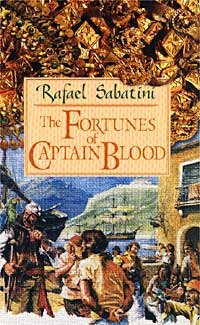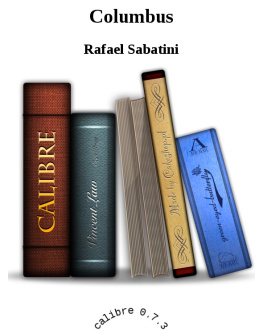Rafael Sabatini - The Trampling of the Lilies
Here you can read online Rafael Sabatini - The Trampling of the Lilies full text of the book (entire story) in english for free. Download pdf and epub, get meaning, cover and reviews about this ebook. year: 2001, genre: Adventure. Description of the work, (preface) as well as reviews are available. Best literature library LitArk.com created for fans of good reading and offers a wide selection of genres:
Romance novel
Science fiction
Adventure
Detective
Science
History
Home and family
Prose
Art
Politics
Computer
Non-fiction
Religion
Business
Children
Humor
Choose a favorite category and find really read worthwhile books. Enjoy immersion in the world of imagination, feel the emotions of the characters or learn something new for yourself, make an fascinating discovery.

- Book:The Trampling of the Lilies
- Author:
- Genre:
- Year:2001
- Rating:5 / 5
- Favourites:Add to favourites
- Your mark:
- 100
- 1
- 2
- 3
- 4
- 5
The Trampling of the Lilies: summary, description and annotation
We offer to read an annotation, description, summary or preface (depends on what the author of the book "The Trampling of the Lilies" wrote himself). If you haven't found the necessary information about the book — write in the comments, we will try to find it.
The Trampling of the Lilies — read online for free the complete book (whole text) full work
Below is the text of the book, divided by pages. System saving the place of the last page read, allows you to conveniently read the book "The Trampling of the Lilies" online for free, without having to search again every time where you left off. Put a bookmark, and you can go to the page where you finished reading at any time.
Font size:
Interval:
Bookmark:
THE TRAMPLING OF THE LILIES
By Rafael Sabatini
PART I. THE OLD RULE
These are they
Who ride on the court gale, control its tides;
***
Whose frown abases and whose smile exalts.
They shine like any rainbowand, perchance,
Their colours are as transient.
Old PlayCHAPTER I. MONSIEUR THE SECRETARY
It was spring at Bellecourthe spring of 1789, a short three months before the fall of the Bastille came to give the nobles pause, and make them realise that these new philosophies, which so long they have derided, were by no means the idle vapours they had deemed them.
By the brook, plashing its glittering course through the park of Bellecour, wandered La Boulaye, his long, lean, figure clad with a sombreness that was out of harmony in that sunlit, vernal landscape. But the sad-hued coat belied that morning a heart that sang within his breast as joyously as any linnet of the woods through which he strayed. That he was garbed in black was but the outward indication of his clerkly office, for he was secretary to the most noble the Marquis de Fresnoy de Bellecour, and so clothed in the livery of the ink by which he lived. His face was pale and lean and thoughtful, but within his great, intelligent eyes there shone a light of new-born happiness. Under his arm he carried a volume of the new philosophies which Rousseau had lately given to the world, and which was contributing so vastly to the mighty change that was impending. But within his soul there dwelt in that hour no such musty subject as the metaphysical dreams of old Rousseau. His mood inclined little to the "Discourses upon the Origin of Inequality" which his elbow hugged to his side. Rather was it a mood of song and joy and things of light, and his mind was running on a string of rhymes which mentally he offered up to his divinity. A high-born lady was she, daughter to his lordly employer, the most noble Marquis of Bellecour. And he a secretary, a clerk! Aye, but a clerk with a great soul, a secretary with a great belief in the things to come, which in that musty tome beneath his arm were dimly prophesied.
And as he roamed beside the brook, his feet treading the elastic, velvety turf, and crushing heedlessly late primrose and stray violet, his blood quickened by the soft spring breeze, fragrant with hawthorn and the smell of the moist brown earth, La Boulaye's happiness gathered strength from the joy that on that day of spring seemed to invest all Nature. An old-world song stole from his firm lips-at first timidly, like a thing abashed in new surroundings, then in bolder tones that echoed faintly through the trees
"Si le roi m'avait donne
Paris, sa grande ville,
Et qui'il me fallut quitter
L'amour de ma mie,
Je dirais au roi Louis
Reprenez votre Paris.
J'aime mieux ma mie, O gai!
J'aime mieux ma mie!"
How mercurial a thing is a lover's heart! Here was one whose habits were of solemnity and gloomy thought turned, so joyous that he could sing aloud, alone in the midst of sunny Nature, for no better reason than that Suzanne de Bellecour had yesternight smiled asfor some two minutes by the clockshe had stood speaking with him.
"Presumptuous that I am," said he to the rivulet, to contradict himself the next moment. "But no; the times are changing. Soon we shall be equals all, as the good God made us, and"
He paused, and smiled pensively. And as again the memory of her yesternight's kindness rose before him, his smile broadened; it became a laugh that went ringing down the glade, scaring a noisy thrush into silence and sending it flying in affright across the scintillant waters of the brook. Then that hearty laugh broke sharply off, as, behind him, the sweetest voice in all the world demanded the reason of this mad-sounding mirth.
La Boulaye's breath seemed in that instant to forsake him and he grew paler than Nature and the writer's desk had fashioned him. Awkwardly he turned and made her a deep bow.
"Mademoiselle! Youyou see that you surprised me!" he faltered, like a fool. For how should he, whose only comrades had been books, have learnt to bear himself in the company of a woman, particularly when she belonged to the ranks of those whomdespite Rousseau and his other dear philosophershe had been for years in the habit of accounting his betters?
"Why, then, I am glad, Monsieur, that I surprised you in so gay a humourfor, my faith, it is a rare enough thing."
"True, lady," said he foolishly, yet politely agreeing with her, "it is a rare thing." And he sighed"Helas!"
At that the laughter leapt from her young lips, and turned him hot and cold as he stood awkwardly before her.
"I see that we shall have you sad at the thought of how rare is happiness, you that but a moment back wereor so it seemedso joyous. Or is it that my coming has overcast the sky of your good humour?" she demanded archly.
He blushed like a school-girl, and strenuously protested that it was not so. In his haste he fell headlong into the sin of hastinessas was but naturaland said perhaps too much.
"Your coming, Mademoiselle?" he echoed. "Nay but even had I been sad, your coming must have dispelled my melancholy as the coming of the sun dispels the mist upon the mountains."
"A poet?" She mocked him playfully, with a toss of black curls and a distracting glance of eyes blue as the heavens above them. "A poet, Monsieur, and I never suspected it, for all that I held you a great scholar. My father says you are."
"Are we not all poets at some season of our lives?" quoth he, for growing accustomed to her presenceravished by it, indeedhis courage was returning fast and urging him beyond the limits of discretion.
"And in what season may this rhyming fancy touch us?" she asked. "Enlighten me, Monsieur."
He smiled, responsive to her merry mood, and his courage ever swelling under the suasion of it, he answered her in a fearless, daring fashion that was oddly unlike his wont. But then, he was that day a man transformed.
"It comes, Mademoiselle, upon some spring morning such as thisfor is not spring the mating season, and have not poets sung of it, inspired and conquered by it? It comes in the April of life, when in our hearts we bear the first fragrant bud of what shall anon blossom into a glorious summer bloom red as is Love's livery and perfumed beyond all else that God has set on earth for man's delight and thankfulness."
The intensity with which he spoke, and the essence of the speech itself, left her a moment dumb with wonder and with an incomprehensible consternation, born of some intuition not yet understood.
"And so, Monsieur, the Secretary," said she at last, a nervous laugh quivering in her first words, "from all this wondrous verbiage I am to take it that you love?"
"Aye, that I love, dear lady," he cried, his eyes so intent upon her that her glance grew timid and fell before them. And then, a second later, she could have screamed aloud in apprehension, for the book of Jean Jacques Rousseau lay tumbled in the grass where he had flung it, even as he flung himself upon his knees before her. "You may take it indeed that I lovethat I love you, Mademoiselle."
The audacious words being spoken, his courage oozed away and anti-climax, followed. He paled and trembled, yet he knelt on until she should bid him rise, and furtively he watched her face. He saw it darken; he saw the brows knit; he noted the quickening breath, and in all these signs he read his doom before she uttered it.
"Monsieur, monsieur," she answered him, and sad was her tone, "to what lengths do you urge this springtime folly? Have you forgotten so your stationyes, and minethat because I talk with you and laugh with you, and am kind to you, you must presume to speak to me in this fashion? What answer shall I make you, Monsieurfor I am not so cruel that I can answer you as you deserve."
Font size:
Interval:
Bookmark:
Similar books «The Trampling of the Lilies»
Look at similar books to The Trampling of the Lilies. We have selected literature similar in name and meaning in the hope of providing readers with more options to find new, interesting, not yet read works.
Discussion, reviews of the book The Trampling of the Lilies and just readers' own opinions. Leave your comments, write what you think about the work, its meaning or the main characters. Specify what exactly you liked and what you didn't like, and why you think so.






